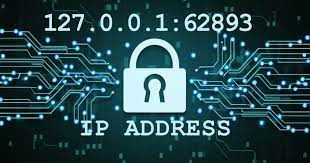
127.0.0.1:62893 – A Comprehensive Guide 2025!
The role of 127.0.0.1:62893 in local development and network troubleshooting. This dynamic port combination plays a crucial role in testing applications and ensuring smooth communication within your device.
We’ll cover its uses, common issues, and best practices for securing services. By the end, you’ll know how to use 127.0.0.1:62893 effectively and securely for development.
What Is 127.0.0.1:62893?

127.0.0.1:62893 is a combination of an IP address and a port number. The IP address 127.0.0.1, commonly known as the loopback address, is used for communication within the same device. Port 62893 is a dynamic or private port that allows applications to communicate locally without external involvement.
This combination is commonly used in local development environments, network testing, and troubleshooting. By using 127.0.0.1:62893, developers can easily test local connections, avoiding the need for external network access.
What Does 127.0.0.1 Represent?
127.0.0.1 represents the loopback address in networking. It is used to send data back to the same computer or device that initiated the request. This is crucial for testing networking software and configurations locally without connecting to an external network.
When you ping 127.0.0.1, you’re essentially testing the networking stack on your device, ensuring that the computer can communicate internally. This process helps ensure that your local server or service is properly configured and can handle requests effectively.
What Does Ping 127.0.0.1 Verify?
When you ping 127.0.0.1, you confirm the capability of your neighborhood networking stack. The command assessments if the device can ship and acquire packets to itself, making sure that the networking protocol is operating correctly.
It additionally confirms that the TCP/IP stack is mounted and nicely configured. A a success ping method the device`s networking additives are functioning as expected, that’s essential for programs that depend on neighborhood communications.
What Does Port 62893 Mean in Localhost Communication?

Port 62893 is a dynamic port used for temporary communication between applications running locally on the system. These ports are not reserved for specific protocols or services but are used for custom communication needs by developers.
By using port 62893, developers can isolate different services in a local environment without conflicting with commonly used ports. It ensures that each service has a unique communication endpoint on the local machine, which helps avoid any networking issues.
How Do Developers Use 127.0.0.1:62893 for Local Development?
Developers often use 127.0.0.1:62893 for testing and debugging services locally. By running a web server or database on this address and port, developers can simulate a production-like environment without exposing their work to the internet.
This isolated environment ensures that bugs and issues can be resolved safely before deployment. It is also common for developers to test the communication between a backend service and frontend application using this local address, ensuring everything works smoothly before going live.
What Are the Common Errors Associated with 127.0.0.1:62893?
There are numerous not unusual place mistakes while running with 127.0.0.1:62893. One of the maximum common problems is a port conflict, in which any other software is already the usage of the identical port. In such cases, you may change the port wide variety or perceive and prevent the conflicting software.
Another difficulty can arise from firewall regulations that block get right of entry to the port, wherein you ought to modify the firewall settings to permit traffic. Lastly, if the provider isn`t strolling or well configured to concentrate at the port, you could stumble upon a connection failure.
READ MORE: Travel Tweaks Offers- Unlocking Hidden Savings and Benefits!
How Does 127.0.0.1:62893 Facilitate Network Troubleshooting?
127.0.0.1:62893 is an essential tool for network troubleshooting. It allows you to test the local networking stack and verify that the system’s TCP/IP configuration is correct. By sending packets to this address, you can diagnose any issues that may prevent communication between applications or services.
It helps identify potential network configuration errors or software malfunctions that could impact the device’s ability to function properly on a network.
What Are Some Common Use Cases for 127.0.0.1:62893 in Modern Applications?

127.0.0.1:62893 has several practical uses in modern applications. One common use is in local web servers and databases, where developers can test and debug applications without needing an external server. It is also used in multiplayer gaming, where players can test a local LAN connection.
In microservice architectures, different services may communicate with each other locally via this address and port, streamlining the development process. This enables rapid iteration and troubleshooting before deployment.
What Are the Security Considerations When Using 127.0.0.1:62893?
Although 127.0.0.1:62893 is local to the device, security is still an important consideration. Services running on this address and port should be protected, especially if they handle sensitive data.
Best practices include securing the services with encryption and authentication to prevent unauthorized access. It is also crucial to limit the exposure of the port to external networks by using firewalls or securing the service with a password or token.
How Can 127.0.0.1:62893 Enhance the Development Workflow?

127.0.0.1:62893 enhances the development workflow by providing a controlled, isolated environment for testing applications. Developers can test web servers, APIs, and databases without worrying about external network dependencies. This ensures faster iteration and debugging.
By using localhost communication, developers can quickly identify and fix issues before moving to a production environment, saving time and reducing the risk of errors.
What Are the Best Practices for Working with 127.0.0.1:62893?
When working with 127.0.0.1:62893, it’s important to follow best practices for effective management. First, ensure that port management is handled properly to avoid conflicts with other services. Developers should also document their local environment setups for easier troubleshooting.
FAQs:
Can I use 127.0.0.1:62893 for production services?
No, it’s best for local development. Use public IP addresses for production. Always ensure production services are properly secured.
How do I find out if port 62893 is being used?
Run netstat or lsof on Linux, or netstat -ano on Windows to check. This helps you monitor active connections.
How do I change the port for a local service?
Edit the service’s configuration file to change the port number. Be sure to restart the service after making the change.
Is it safe to expose 127.0.0.1:62893 to the internet?
No, it’s meant for local use. Use a public IP with proper security for internet access. Exposing local ports can lead to vulnerabilities.
Can I run multiple services on 127.0.0.1?
Yes, as long as each service uses a different port number. This allows you to host various local services simultaneously.
What is the best way to secure services on 127.0.0.1:62893?
Use encryption (HTTPS), authentication (API keys), and configure your firewall to block external access. Always monitor access logs for unusual activity.
Conclusion
127.0.0.1:62893 is a powerful tool for local development and troubleshooting, providing an isolated environment for testing applications. By following best practices for security and port management, developers can ensure a smooth and efficient workflow without exposing sensitive services to external risks.
READ MORE:
- Explore soul land vi – Detailed Novel In 2024
- Crypto-Engine.Pro Blog – Review 2025!
- Newznav.com Crypto Archives Page – Comprehensive Guide 2025!
You May Also Like

Google’s 25e Verjaardag – AgUide By Industry Expert!
April 5, 2024
Boborite Symbol Meaning – Unveiling Its Significance!
January 1, 2025


Average Rating